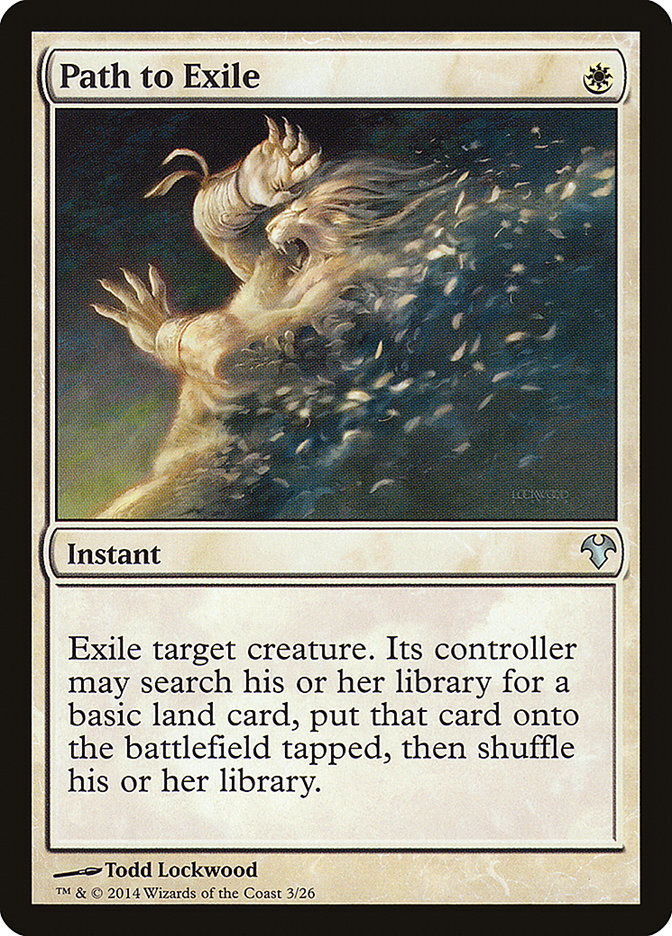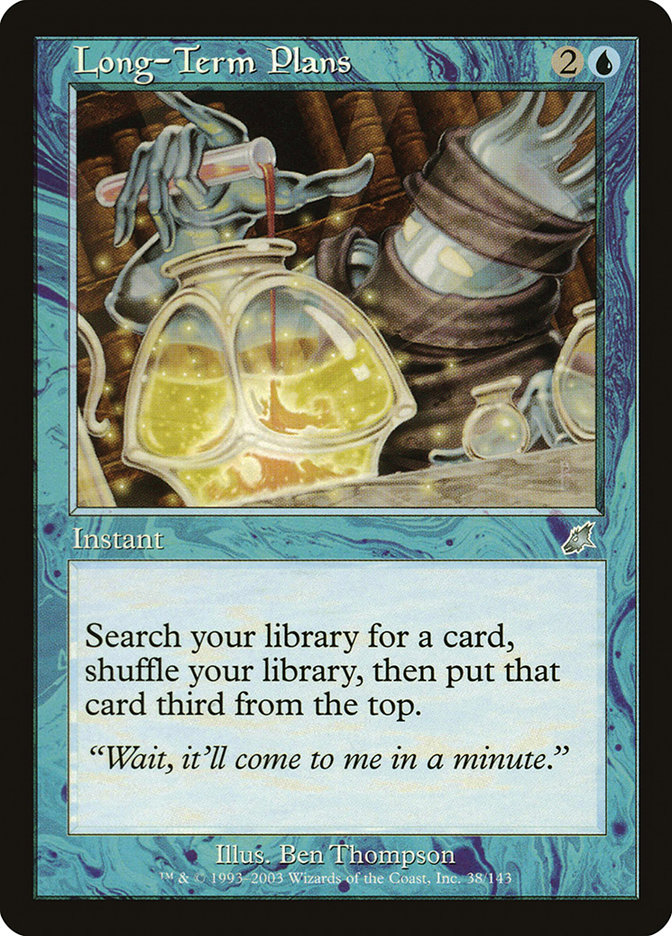“Do I suck at Magic again? I recently finished #GPCostaRica, losing my last four matches after a 10-0-1 start. This wasn’t even the first Grand Prix this season where I imploded like this. #GPLondon was the same! I started off 11-0 before losing the next four in a row. That doesn’t even include all the win-and-ins I’ve turned into lose-and-outs. A good player wouldn’t lose that many important matches in a row or fall just short of Top 8 this many times. I suck at Magic again.”
I’ve realized as of late that I’ve become more emotionally attached to my results than I’d like to admit. In the past few years, I’ve prided myself on completely stripping away emotion from this game, but that’s easily done when things are going well. Lately, things haven’t been going the way I’ve wanted them to. Sounds incredibly entitled, coming from a guy who was in the last Pro Tour’s Top 8, and that’s exactly what it is. Somehow, someway, I’ve regressed into a mindset I’m not comfortable having. I’ve begun to be results-oriented and frustrated from all of my near-misses at my last couple of Grand Prix. This is not the player I enjoy being, and one I won’t allow myself to solidify as.
My seven-year journey with professional Magic has been as bumpy as it’s been long. I’ve had great accomplishments, failed on many other attempts, and have watched dozens of my peers walk similar paths. In that time, I’ve learned how others in my position deal with the highs and lows of competitive Magic. Everyone’s process is slightly different, but through years of reflective observation, I’ve realized why some continue to succeed while others fall by the wayside. What separates the successful from the unfortunate has less to do with natural talent than you may think.
For much of my life I’ve considered failure to be the opposite of success. After all, history was written by the victors. This appeared to be true by definition, causing years of my life to be spent ignoring the possibility that this was the incorrect way to approach my decision-making process. I ignorantly believed the path that led me to successful outcomes was correct, and that I had strayed from said path when I had failed.
Results-oriented thinking is widely considered a bad thing when it comes to Magic. It hinders holistic evaluations of one’s own abilities and often causes minute details to seem more relevant than they are. Oftentimes those details revolve around spikes in variance.
That said, the perception of one’s own skill in Magic is very difficult to objectively evaluate, given the large number of variables that are present. The lines get easily blurred, and we use results from tournaments to help find clarity. We do this even though we know results-oriented thinking can cause one to confuse good results with good decisions. We do this because it’s easier to justify our actions based on the results we get from them, especially when the results are good.
The more difficult form of self-evaluation, but also more rewarding in the long run, is process-oriented thinking. This entails putting the emphasis on the approach, regardless of whether the expected result happens or not. Process-oriented thinking has the higher potential for growth over a long period of time. It’s a struggle with constantly evaluating each and every minute detail regardless of the result it created, but ultimately the process should validate the outcome, not the other way around.
Process-oriented thinking is used by those who understand variance’s ability to distort outcomes. They understand that varying results can manifest regardless of process, which invalidates the relevancy of most results-based actions. Instead of emotionally attaching to positive outcomes, they instead appreciate perfecting the journey toward any potential conclusion. That is, after all, the most logical way to beat variance in the long run.
Learning to truly be process-oriented takes experience and self-awareness. It’s not something easily understood and especially not for players who are new to the game. It takes trial and error before it’s possible to understand exactly how this way of thinking applies to this game on a competitive level. Often it takes a long journey with many failures along the way before one can truly differentiate between result- and process-oriented decision making.
Now, neither method is used by players just starting out. Without a defined process, nor any results to go on, new players cannot define good or bad. The game is played objectively and that objective is to have fun.
Stage One: You’re Bad, and You Know You’re Bad
Everyone knows they are bad when they first start out. The game is played purely for enjoyment regardless of the vehicle being used. Some play on their kitchen table with siblings and friends. Others solely play electronically on Duels of the Planeswalkers. All that matters during this stage is that Magic is a game like any other and is a vessel used for recreation. Results don’t matter as long as everyone is having a good laugh.
Eventually a small subset of those players will move onto a local game store to try out Magic at a more competitive level. They may even keep coming back because they enjoy the environment. They see others who take the game seriously but don’t want to put in the time or effort to get the same results as those players. They are happy treating Magic as an escape from responsibility and don’t mind taking their licks from time to time because of that decision.
Now, a subset of these players will begin to work at trying to become better than the other players from their area. Articles will be read, tournaments will be watched, and an overwhelming sense of confidence will engulf them. They begin to see their game store as a castle, and themselves as the king who will be seated on its throne.
Stage Two: You’re Bad, but You Think You’re Good.
These players will continue to grow confidence as they reach for the stars. Invitational Qualifiers and PPTQ’s may become their playground as they constantly win more and more pins and playmats. They begin to believe they are great at this game and are ever-so-close to proving that to the rest of the world. They no longer take advice from those around them. They are all that they need.
This is when self-awareness goes out the window. The lust for greatness is all-consuming. A lack of failures foolishly translates into successful accomplishments, causing many bad habits to become internalized.
Some players can get stuck in this stage for an extended period of time. They stagnate at times within it, causing self-doubt, but their level of hubris will justify any shortcomings as uncontrollable external elements. Results-oriented thinking takes over the decision-making process, and many of the actions taken inside this stage are emotionally driven. Entitlement grows as they fuse their self-worth with tournament success. They begin to treat their surrounding players as competition instead of companions. All they want is to succeed and for everyone to see it.
Sadly, if all of someone’s focus is on achieving glory, that will be the last thing they obtain.
Stage Three: You’re Good, but You Think You’re Bad
Eventually a moment will cause humility to once again course through their veins. That’s if they haven’t already insulated themselves completely from intervention. The catalyst for change could come from extended losses at their local game store, a crippling defeat that was clearly caused by ego, or a quick trip to and back from an Invitational or Pro Tour. Whatever it is, those who transition from this stage onto the next will have begun their journey towards learning how to appropriately evaluate Magic.
The transition from Stage One into Two is extremely organic, and rarely realized while it’s actually happening. This one, however, is a much more jarring experience. It’s caused by an almost humiliating moment that shakes a person to their very core. Ego and the pursuit for glory blinds one to their own limitations. Elevated by the pedestal they’ve placed under themselves, they look down upon all the landscape they will never have to travel again. They fall.
This is right around the time that a player now has enough results behind them to understand that maybe their process has some holes in it. They begin to patch up their process and begin to understand the damage caused by pursuing instant gratification. Results no longer dictate future actions. Process-oriented thinking takes over without realization as they begin to study the game as a student and stop playing it simply to be on the banner that heads this article.
They will continue having the results they previously had for some time, but less emphasis will be placed on them. Then their previous peaks will be topped, but their newfound understanding of gravity will keep things in perspective. Eventually they will become good at the game without even knowing it. They’ve been more focused on the process needed to succeed than success itself and it begins to show.
Stage Four: You’re Good, and You Know You’re Good
Eventually, those who stay grounded and dedicated long enough will transition to Stage Four. This is the culmination of a growing confidence in one’s process and appreciation of previous accomplishments coupled with a lack of entitlement. Countless hours have now been spent refining the process, and a thick foundation is forming to build a career on.
Individual results mean very little at this point. A deep understanding that wins don’t equate to more wins keeps those in this stage grounded for as long as they continue to remember this.
Those in this stage stay in it because they have fallen in love with the process of becoming great. Greatness can be achieved, but it’s always fleeting. What can be a constant is the pride felt when pursuing perfection with the understanding that it will never be obtained.
Sadly, this journey is fluid. Without constant self-awareness and a deep understanding of process-oriented thinking, one can continuously transition between all of the stages. The consistently successful players in this game understand this, which is why we see them succeed so often. It doesn’t mean they don’t fall back into some of the less desireable stages from time to time, but they quickly identify their newly acquired bad habits and readjust.
The Pursuit of Self-Awareness
It’s never easy to figure out exactly what stage you are in. Self-awareness is key to being able to figure it out, but the variance pumped into this game can sometimes cause false positives. Luckily, it doesn’t matter where you are as long as you know where you want to be. Focusing on the process and constantly trying to improve upon it will always be the beacon of light needed to find land when lost in a sea of self-doubt. It just might take more time than you may expect, but that’s exactly why you must fall in love with the process and not the results. Avoiding emotions allows for a detachment from results, making it easier for one to draw motivation from the quality of work and not from what that work equates to.
We all will fly toward the sun, only to see our wax wings melt. If we survive the fall, only then can we rebuild.







